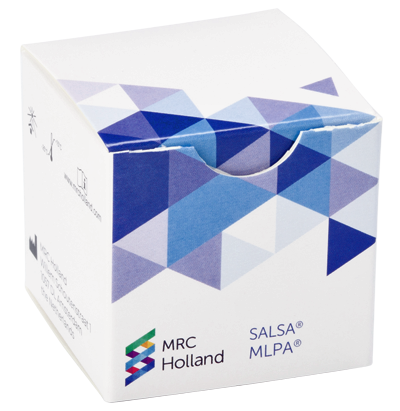P383 T-ALL

SALSA MLPA Probemix P383 T-ALL detects copy number variations in 13 chromosomal regions suggested to be of diagnostic and/or prognostic importance in T-lineage acute lymphoblastic leukemia (T-ALL).

Contents: 56 MLPA probes, including 6 probes for the STIL-TAL1 region (1p33), 4 probes for LEF1 (4q25), 4 probes for CASP8AP2 (6q15), 3 probes for MYB (6q23), 3 probes for EZH2 (7q36) 6 probes for the MLLT3, MTAP and CDKN2A/B region (9p21), 4 probes for the NUP214-ABL1 fusion gene (9q34), 4 probes for PTEN (10q23), 2 probes for LMO1 (11p15), 6 probes for the RAG2-LMO2 region (11p13), 2 probes each for NF1 and SUZ12 (17q11), 4 probes for PTPN2 (18p11) and 4 probes for PHF6 (Xq26).

Tissue: human genomic DNA.

Application: research on T-lineage acute lymphoblastic leukemia (T-ALL).

For research use only (RUO). Not for use in diagnostics.

